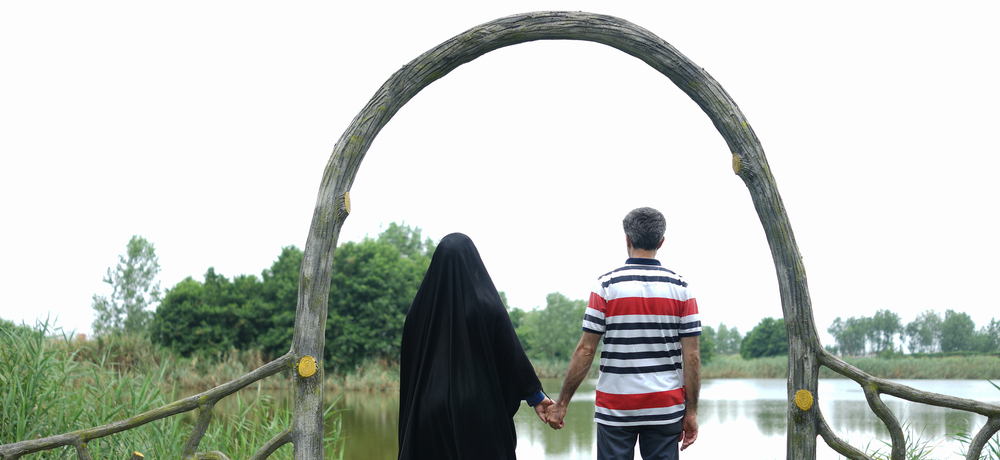If Men Are Granted the Maidens of Paradise, What Are Women Granted?
Answered by Shaykh Dr. Muhammad Abu Bakr Badhib
Question
If men are granted the maidens of paradise, what are women granted?
Answer
In the name of Allah (Most High), peace and salutations be upon Muhammad, the Messenger of Allah, upon His Family and Companions and those who followed him.
Allah (Most High) promised continual bliss for his believing servants in a permanent dwelling in the gardens of paradise, enjoying the company of children and the maidens of paradise. Women, too, participate in this bliss as Allah Most High says, “I will never deny any of you – male or female – the reward of your deeds.” [Quran, 3:195]
He has also said, “Whoever does good, whether male or female, and is a believer, We will surely bless them with a good life, and We will certainly reward them according to the best of their deeds.” [Quran, 16:97]
The pleasures specific to women are the following:
- A woman does not experience menstruation or post-natal bleeding in paradise. Tabari narrates in his tafsir from Ibn Mas‘ud, Ibn ‘Abbas, and others among the companions of the Prophet (Allah bless him and give him peace) that they said regarding the verse “pure spouses” in Sura Baqara [1:25], meaning they don’t experience menstruation, have impurities or phlegm.
- It has been mentioned in the Hadith books that Umm Amara Nasiba bint Ka‘b asked the Messenger of Allah (Allah bless him and give him peace) to supplicate that she would be among his companions in paradise. So he supplicated, “Oh Allah, grant them my companionship in paradise.” She responded, “I am content with whatever I have from this world.” So, in this regard, women, too, get to see the Messenger of Allah (Allah bless him and give him peace) in paradise and keep his company.
Women in paradise are created with splendid beauty that increases day after day. It is not far-fetched that some of the traits of the ‘Hur’ (pure companions in paradise) are to be found in women since they are the women of paradise, after all.
Regarding women, Allah’s Messenger (Allah bless him and give him peace) said the crowns on their heads are better than the world and everything within it. Tabarani narrates this; Haythami said that its chain is excellent.
Regarding the husbands of women from the people of this world, there are distinctions:
- Whoever didn’t marry in this world, Allah (Most High) will grant her a husband in paradise who will comfort her.
- When a married woman dies, her husband in paradise will be the man she was married to in this world. Similarly, if he died and she never married anyone after him.
- As for whoever is married again after the death of her husband or a divorce, she is to choose between the former husband and the last husband in the next world. According to one position, her husband will be her first, and another position states that her husband will be the last of those whom she had relations with in the world. This is due to the Hadith that Abu Darda’ narrated, where Allah’s Messenger (Allah bless him and give him peace) said, “Any woman whose husband dies and she remarries after him she will be with the last of the husbands to be his wife.”
References:
- [Tabari, Jami‘ al-Bayan (Harf, Hijri) 1.419]
- [Ibn Sa‘d, Al-Tabaqat al-Kubra, 8.415]
- [Tabarani, Al-Awsat, 3.275, 281]
- [Haythami, Majma‘ al-Zawa’id, 10.774]
- [Alousi, Ruh al-Ma‘ani, 13.143]
[Shaykh] Dr. Muhammad Abu Bakr Badhib
Shaykh Dr Muhammad Abu Bakr Badhib is a prominent Islamic scholar from Yemen born in Shibam, Hadhramaut, in 1976. He received his degree in Shari‘a from Al-Ahqaf University, a master’s degree from the Islamic University of Beirut, and a PhD in Usul al-Din from Aligarh Muslim University (AMU).
He studied under great scholars such as Shaykh al-Habib Ahmad Mashhur al-Haddad, Shaykh Fadl Ba‘ fadl, Habib Salim al-Shatiri, Habib Ali Mashhur bin Hafeez, and others. He has served as the Director of Publications at Dar al-Fiqh, the former Deputy Director of Cultural Relations at Al-Ahqaf University, a former Assistant for Employee Affairs at Atiyah Iron Company, a researcher at the Sunna Center affiliated with the Dallah al-Baraka Foundation, and a researcher at Al-Furqan Foundation’s Makka al-Mukarrama and Madina al-Munawwara Encyclopedia branch.
Currently, he is a researcher at Al-Furqan Foundation’s Makka al-Mukarrama and Madina al-Munawwara Encyclopedia branch, teaches traditionally through the Ijaza system at Dar al-Fuqaha in Turkey, supervises the Arabic department at Nur al-Huda International Institute (SeekersGuidance), and is a member of the Board of Trustees of the Manuscript House in Istanbul.
His works include “The Efforts of Hadhramaut Jurists in Serving the Shafi‘i School,” “Contributions of Hadhramaut Scholars in Spreading Islam and its Sciences in India,” “Hada’iq al-Na‘im in Shafi‘i Fiqh,” in addition to verifying several books in Fiqh, history, the art of biographies, and Asanid (chains of narration).
